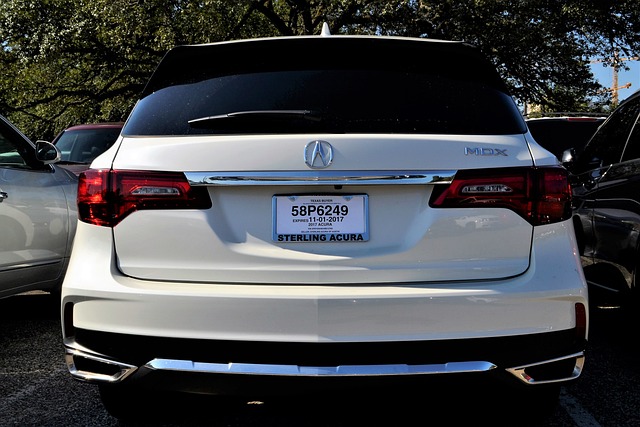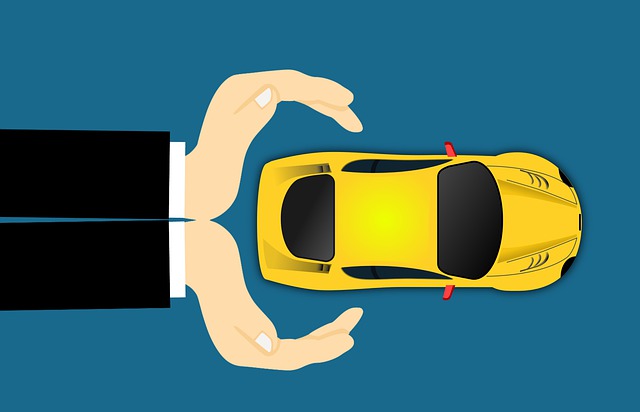With their ease, independence, and mobility, vehicles have become an essential part of our lives in today’s fast-paced society. But driving also comes with a lot of obligations, and getting the right auto insurance is one of the most important of them. This priceless insurance guarantees the safety of other drivers on the road in addition to saving you money in the case of an accident.
Comprehending Auto Insurance
An person and an insurance company enter into a contract for car insurance, which offers financial protection against a range of hazards related to vehicle ownership and operation. In return for the insurer agreeing to pay certain costs, such repair or medical expenses, in the event of an accident or other insured occurrences, the policyholder pays a premium.

Car Insurance Types
1. Liability Insurance:
In most jurisdictions, liability insurance is a legal need that protects against bodily harm and property damage you may cause to other people in an accident. It falls into two primary categories:
Bodily Injury Liability:
This insurance pays for the costs of treatment, recuperation, and sometimes even missed income and court costs for anyone hurt in an accident you caused.
Property damage liability covers the cost of replacing or repairing anything (such other cars, buildings, or other property) that are damaged in an accident in which you are at fault.
2. Collision Coverage:
This insurance protects your car in the event of an accident with another car or object, no matter who is at fault. It pays for the price of maintenance or the car’s replacement value.
3. All-Inclusive Coverage:
This coverage extends beyond collisions with other automobiles. It offers defense against non-collision events such as fire, theft, vandalism, natural catastrophes, and collisions with animals.
4. Uninsured/Underinsured Motorist Coverage:
This kind of insurance is crucial in the event that you are in an accident with a motorist whose insurance is either insufficient to cover the damages or nonexistent altogether.
5. Medical Payments Coverage:
Regardless of who is at fault in an accident, medical payments coverage covers your passengers’ and your own medical costs.
6. Personal Injury Protection (PIP):
PIP is a more extensive kind of medical payments coverage. It often pays for extras like missed income, therapy, and even burial fees.
7. Rental Reimbursement:
In the event of a covered accident, this extra coverage helps cover the cost of a rental car while your automobile is being repaired.
Selecting Appropriate Coverage
Choosing the right insurance relies on a number of things, such as your spending limit, the car’s worth, the way you drive, and local laws. Although it might be tempting to choose the bare minimal coverage in order to save money on premiums, it’s crucial to think about the possible financial repercussions of having insufficient insurance in the case of a catastrophic accident.
The Value of Auto Insurance
Unexpected incidents and mishaps are a part of existence in an uncertain environment. In addition to providing the driver and other parties with financial security and peace of mind, auto insurance acts as a safety net. Without it, the aftermath of an accident might have disastrous financial repercussions that could affect not only your own wellbeing but also your capacity to carry out other significant obligations.
Managing Liability Coverage
Any auto insurance coverage starts with liability insurance. For good reason, most governments have made it a legal requirement. Consider the anxiety and financial burden of having to pay for someone you accidentally hurt in an accident’s medical expenses, rehabilitation, and property damage yourself. In times of need, liability insurance fills in to take on these responsibilities and guarantees that people get the assistance and money they need.
Comprehensive and Collision Coverage:
A Defense Against Unexpected Collisions Its thorough coverage broaden the scope of protection beyond collisions with other cars. Imagine how much comfort it will provide to know that your automobile is protected in the case of a natural catastrophe, a destructive vandal, or even an unlucky run-in with an inquisitive, mischievous animal. By providing protection against a variety of unanticipated events, these plans lessen the financial impact and hasten the healing process.
Underinsured and Uninsured Driver Protection: A Safety Grasp for All

Although it is often disregarded, uninsured and underinsured motorist coverage is essential for protecting your rights. It serves as a safety net, making sure that in the event of an accident involving a motorist who does not have enough insurance, you are not left to shoulder the financial responsibility. This coverage acts as a lifeline, ensuring that you and your passengers get the medical attention you need regardless of the insurance status of the other party.
Beyond Health Care Costs: Personal Injury Defense (PIP)
In the midst of hardship, personal injury protection, or PIP, offers a glimmer of hope. It covers not only the necessities, such as medical expenditures, but also goes above and beyond, including lost income, costs associated with rehabilitation, and even burial fees in the sad case of a tragic accident. PIP is a complete safety net that provides assistance and financial support during one of life’s most difficult times.
Customizing Your Policy to Meet Your Needs
Choosing the appropriate coverage is a personal choice that has to take your unique situation into serious consideration. Considerations should be made for things like your driving style, the worth of your car, and local legal restrictions. Although it may be tempting to choose little coverage in order to save rates, the possible repercussions of having insufficient insurance in the event of a catastrophic accident much exceed the immediate financial gains.
The Changing Automobile Insurance Market
The field of auto insurance has advanced significantly in recent years. In the era of technology, some insurers now provide usage-based plans, in which the actual driving behavior of the policyholder determines the price. By tracking variables like speed, braking habits, and distance traveled, telematics devices and smartphone applications provide a more individualized and equitable pricing strategy. This invention promotes a culture of responsible driving in addition to providing cheaper rates for safe drivers.
Specialty Insurance: Adapting It to Your Way of Life
Specialized insurance extend beyond the basic coverage choices to meet specific requirements and lifestyles. For instance, owners of historic cars may get coverage that is customized to meet the needs of their prized possessions. Similar to this, owners of ridesharing businesses and those who sometimes rent out their automobiles on websites like Airbnb have the option to choose regulations that blur the lines between personal and business usage.
Premiums and Deductibles: Finding the Correct Balance
Deductibles and premiums must be balanced if you want to create an insurance plan that fits your budget and risk tolerance. Lower premiums are associated with greater deductibles, however in the case of a claim, more out-of-pocket costs may be incurred. On the other hand, smaller deductibles often result with higher rates. Knowing this dynamic will help you make well-informed judgments that fit your risk tolerance and financial restrictions.
Savings via Bundling and Discounts
Numerous insurance companies have a number of savings options that may drastically lower your rates. These might include discounts for safe driving, discounts for multiple cars, and even choices for combining your auto insurance with other plans like renters’ or homeowners’ insurance. By taking advantage of these possibilities, you may save a lot of money without sacrificing the quality of your coverage.
Policy Reviews and Renewals: Adjusting to Changing Situations
Life changes, and so do your insurance requirements. It’s critical to regularly check your policy to make sure it still applies to your present situation. Your insurance needs may alter as a result of events like buying a new automobile, getting married, or moving. You may adapt your coverage to suit your changing requirements by being proactive and communicating with your insurer.
In summary
Not only is auto insurance required by law, but it’s also an essential safety precaution for you, your passengers, and other drivers. You may travel with confidence knowing that you’re ready for everything that the road may throw at you if you know what kinds of coverage are available and choose the best insurance for your requirements. Keep in mind that purchasing auto insurance is an investment in your financial stability and peace of mind. Drive defensively and with insurance!
The following are some often asked questions (FAQs) about auto insurance:
Q:Is having auto insurance required?
A: Yes, it is often required by law to have auto insurance. To cover any losses or injuries you could cause to other people in an accident, you must carry at least liability insurance.
Q:What factors affect how much auto insurance costs?
A number of variables, such as your driving history, age, gender, location, vehicle type, kinds of coverage, and in some situations even your credit score, may influence your auto insurance rate.
Q:Is it possible to change insurance companies mid-policy?
A: You may change insurance companies whenever you want, but you should always take early cancellation penalties into account. Before making any changes, it is recommended to study the conditions of your policy and speak with your present provider.
Q:What is the impact of my deductible on my premium?
A greater deductible often results in reduced rates; on the other hand, a smaller deductible typically translates into higher premiums. Selecting a deductible that you can easily pay in the case of a claim is crucial.

Q:What happens if my auto insurance lapses?
A: If you let your auto insurance expire, you will no longer be protected. Legal repercussions, including fines or license suspension, as well as financial concerns in the event of an accident, may result from this.
Q: How does the claims procedure work?
A covered occurrence or accident requires you to tell your insurance provider right away. They will assist you with the claims procedure, which often entails giving details about the occurrence, getting quotes for repairs, and, if required, liaising with adjusters.
Q:Is it possible to include more drivers in my policy?
A: You may add more drivers, including as family members or housemates, to most insurance. Remember that your premium may be impacted by the other drivers’ driving history.
Q:Is rental vehicle coverage covered by my insurance?
A: In the event of a covered accident, your insurance may assist with the cost of a rental automobile if you have rental reimbursement coverage. But you have to choose this extra coverage when you buy your insurance.
Q:Do I need specialized insurance when purchasing or leasing a car?
A: The leasing or financing firm may require you to have certain kinds and quantities of coverage, such as collision and comprehensive insurance, if you’re leasing or financing a car.
Q:Can I get a vehicle insurance discount?
A: Certainly, a lot of insurance providers provide a range of discounts, such as multi-car, safe driver, bundle, and more. It’s worthwhile to ask your insurer about any discounts that could be available to help you reduce your premium.